-
Sale!


₹85.00 – ₹149.00
Duckweed is a native aquatic floating plant in Florida. Though very small, it is the largest of the duckweeds. Lemna Minor is frequently found growing in rivers, ponds, and lakes. It gives you a greenery look of your pond and aquarium and a hiding place for your fish.it is dark, glossy green. Bottom? reddish purple….
-


₹99.00 – ₹299.00
Uses of Water Cabbage Live plants: Water Lettuce/ Water Cabbage Live Plants have frequently been developed as a fancy in lakes, ponds, aquariums and gardens. It is generally used in tropical aquariums to give cover to little fish. It has medicinal properties and can be utilized as a grub for dairy cattle and pigs. Water…
-
Sale!
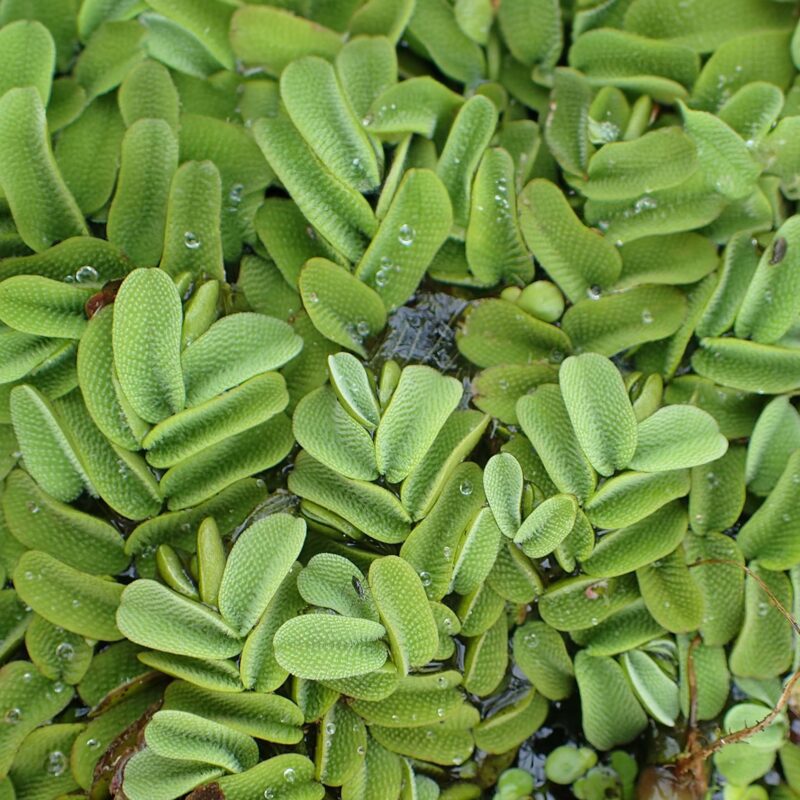

₹197.00 ₹99.00
Salvinia natans – commonly known as floating fern or Water moss .It can be found throughout the world and can be grown in all climate. It has Drought tolerant capacity. It is a floating live plant, contains air pouch inside the leaves, suitable for small pond aquarium. Fresh Live Plant: Aquatic Floating Watermoss – Aquatic…
-
Sale!


₹185.00 – ₹565.00
Water hyacinth is a free-floating perennial aquatic plant (or hydrophyte) native to tropical and sub-tropical South America. The leaves are 10–20 cm (4–8 inches) across on a stem which is floating by means of buoyant bulb-like nodules at its base above the water surface. They have long, spongy and bulbous stalks.Water hyacinth can reproduce rapidly,…
-
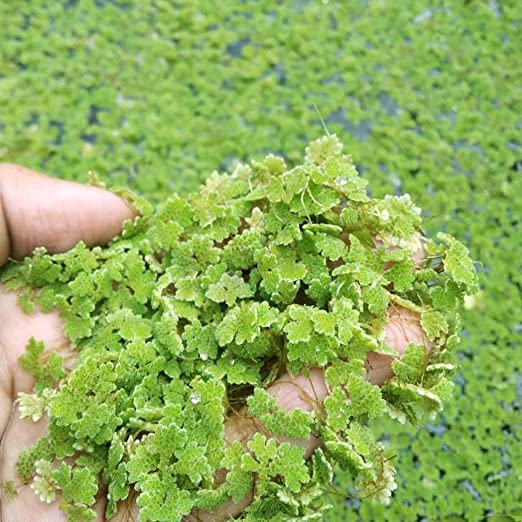

Azolla Floating Plant is an exceptionally useful plant. It copies its biomass in 1.9 days or more, contingent upon conditions, and yield can arrive at 8-10 tons of new matter/ha in Asian rice fields. 37.8 t new weight/ha (2.78 t DM/ha dry weight) has been accounted for Azolla pinata in India. Azolla seeds float on…
-
Sale!


₹139.00 – ₹199.00
Cabomba plants can be green or reddish-purple, with Green Cabomba plants being the more popular and more readily available. A Purple Cabomba, sometimes called a Red Cabomba, is somewhat more rare. Purple Cabomba and Red Cabomba plants. Under the right tank conditions, a Cabomba plant can make an excellent background plant. Aquatic Plants for Aquarium:…
-
Sale!
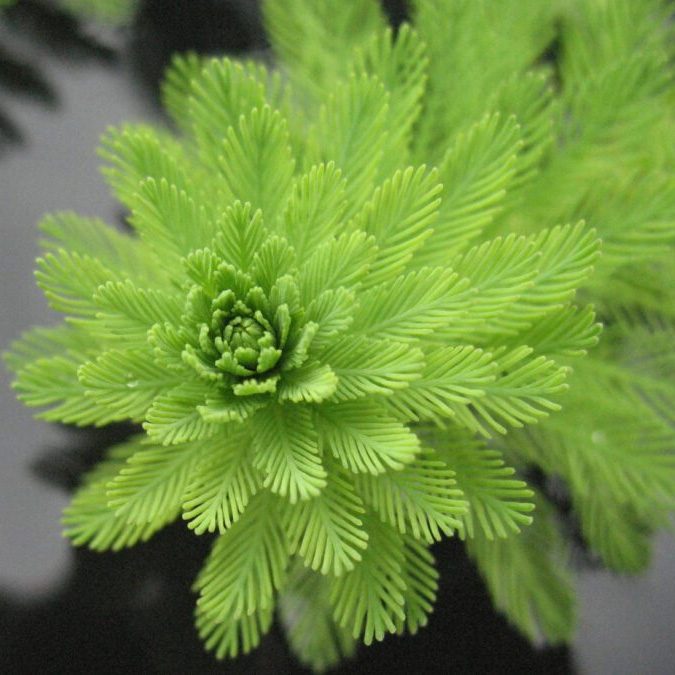

₹299.00 ₹199.00
The parrot feather is a visually striking plant that adds a unique texture and dimension to any aquatic environment. The leaves are also quite long, with some specimens reaching lengths of up to 10 inches (25 cm). The stem of the plant is thin and flexible, allowing it to bend and sway with the movement…
-
Sale!
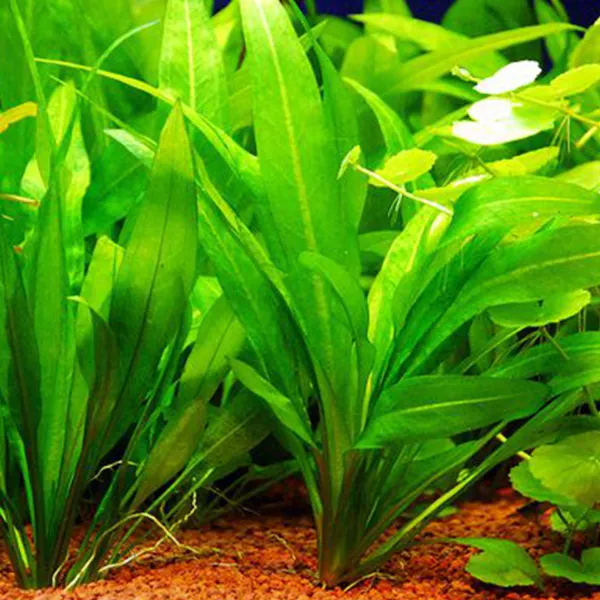
₹199.00 – ₹249.00
This aquatic plant is ideal for freshwater aquariums and adds a touch of nature to your aquarium while also providing numerous benefits to the aquatic environment. The Amazon Sword Big Leaf Aquarium Plant helps oxygenate the water by converting carbon dioxide into oxygen, making it a great choice for creating a healthy and balanced ecosystem…
-
Sale!


₹250.00 ₹199.00
Hydrocotyle verticillata, also known as whorled pennywort, whorled marsh pennywort, or shield pennywort, is a flowering plant found in South and North America and the West Indies. The creeping plants with unusual leaves give them their common names. It grows in places that are marshy, boggy, and wet. Whorled pennywort plants have thread-like stems and…
-
Sale!
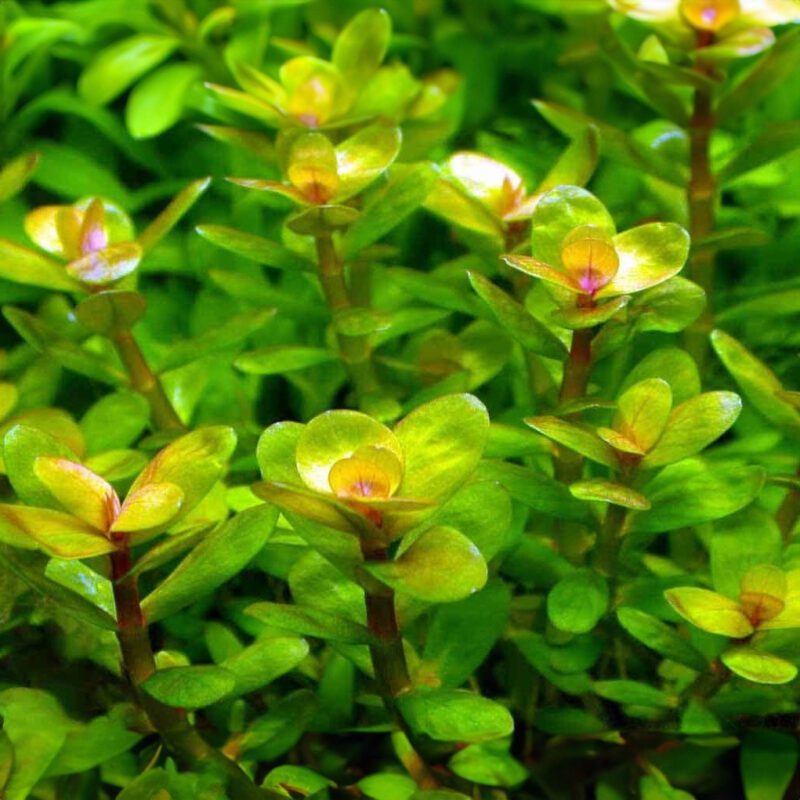
₹299.00 ₹199.00
Rotala is a popular aquatic plant among aquarium enthusiasts due to its vibrant colors and ease of care. It belongs to the family Lythraceae and is native to Southeast Asia. There are several varieties of Rotala available in the market, each with its own unique leaf shape, size, and coloration. In general, Rotala plants have…
-
Sale!

₹299.00 ₹249.00
Aquarium plants are a great way to spruce up your home aquarium and provide both a natural aesthetic as well as a practical purpose. Plants can be used to create environments for fish to hide in, as well as to help keep the water clean by absorbing nitrates and other pollutants. They also look great…
-
Sale!

₹199.00 ₹119.00
This aquatic plant is ideal for freshwater aquariums and adds a touch of nature to your aquarium while also providing numerous benefits to the aquatic environment. The Amazon Sword Big Leaf Aquarium Plant helps oxygenate the water by converting carbon dioxide into oxygen, making it a great choice for creating a healthy and balanced ecosystem…
End of content
End of content




















